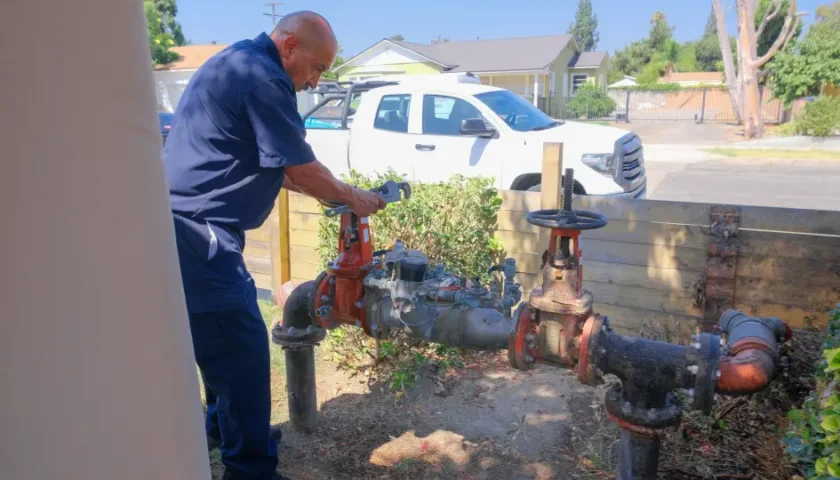In today’s fast-paced world, the importance of environmental conservation is more pressing than ever. With climate change and environmental degradation posing serious threats to our planet’s health and sustainability, it is crucial for businesses and government bodies to adhere to environmental regulations.
These regulations are designed to protect natural resources, ensure public safety, and minimize ecological damage. However, understanding and complying with these regulations can be a complex and challenging process. This is where environmental consultants come into play, offering their expertise to help organizations navigate these regulatory waters smoothly.
What Are Environmental Consultants?
Environmental consultants are professionals who specialize in various aspects of environmental science, including ecology, environmental law, civil engineering, and environmental chemistry, among others.
They provide expert advice and practical solutions to ensure that their clients — which can include corporations, construction firms, manufacturers, and governmental entities — comply with environmental laws and regulations. Their services are crucial in helping businesses operate sustainably and ethically, minimizing environmental impact while also avoiding legal repercussions.
The Scope of Environmental Consulting
Environmental play a diverse role, ranging from conducting detailed environmental assessments to advising on waste management and sustainability practices. Let’s explore the primary functions of these consultants in detail:
Compliance Assistance
One of the primary roles of environmental is to help organizations comply with stringent environmental regulations. These regulations can vary significantly from one country to another and may include laws related to air quality, water quality, waste management, and chemical usage. Consultants stay up-to-date with these regulations and advise their clients on how to adjust business practices to meet these standards. They also help prepare necessary documentation and reports required by regulatory bodies.
Environmental Impact Assessments (EIAs)
Before any significant project can begin, particularly those that might impact the natural environment, an Environmental Impact Assessment (EIA) is often required. This assessment is crucial in planning phases to ensure that potential impacts on the environment are understood and mitigated.
Environmental consultants conduct these assessments to analyze the possible positive or negative effects, proposing measures to reduce harmful impacts. For instance, if a new highway is planned through a forested area, consultants will assess the impact on local wildlife and vegetation and suggest alternative routes or mitigation strategies to protect the ecosystem.
Site Remediation and Contamination Management
Many sites, particularly in industrial areas, may suffer from soil or water contamination due to past usage. Environmental design and manage remediation projects that clean these sites, making them safe for future use. This process may involve chemical treatments, excavation, or containment strategies. The consultants not only plan and oversee these projects but also ensure that all activities are conducted within legal frameworks to prevent further environmental damage.
Waste Management
Improper waste disposal can lead to significant environmental and health issues. The Best Environmental consultants provide expertise in managing waste effectively. They help organizations develop strategies for minimizing waste production and advise on the best practices for recycling, treatment, and disposal of waste. This not only helps companies reduce their environmental footprint but also often leads to cost savings.
Sustainability Consulting
As the world shifts towards sustainable practices, businesses increasingly look to consultants environmental for guidance on becoming more eco-friendly. Consultants offer strategies for using resources more efficiently, reducing energy consumption, and incorporating renewable energy sources. They help businesses implement sustainable practices in operations, product design, and supply chain management, aligning business goals with environmental sustainability.
Challenges Faced by Environmental Consultants
While environmental consultants are pivotal in assisting with compliance and sustainability, they face several challenges:
- Regulatory Complexity: Environmental regulations are not only diverse but also ever-changing. Consultants must continually update their knowledge and adapt strategies to comply with new or amended laws.
- Technological Integration: As environmental science advances, incorporating new technologies such as GIS (Geographic Information Systems) and remote sensing into their practices is essential. Staying current with technological advancements allows consultants to offer more precise and efficient solutions.
- Balancing Stakeholder Interests: Environmental often need to balance the needs and interests of various stakeholders, including governmental authorities, local communities, and corporate clients. This can involve negotiating compromises to find solutions that satisfy all parties without compromising environmental integrity.
- High Expectations for Sustainability: With increasing public awareness of environmental issues, businesses face more pressure to demonstrate their commitment to sustainability. Consultants must develop innovative solutions that not only comply with regulations but also showcase the client’s commitment to environmental stewardship. The Impact of Technology on Environmental Consulting Advancements in technology have significantly impacted the field of environmental consulting. Modern tools like Geographic Information Systems (GIS), remote sensing, and computer modeling have improved the accuracy and efficiency of environmental assessments and monitoring. These technologies allow consultants to analyze environmental data more effectively and make informed recommendations to their clients.For example, GIS can be used to map and analyze land use, helping to plan projects that minimize environmental disruption. Similarly, computer models can predict the impacts of certain actions on local ecosystems, aiding in making better decisions regarding environmental management.
The Future of Environmental Consulting
The future of environmental consulting looks promising and challenging. With the global push towards sustainability and the introduction of more stringent environmental regulations, the demand for environmental consulting services is expected to grow. Consultants will need to adapt to new regulations, technologies, and societal expectations to provide their clients with the best possible guidance.
Moreover, the role of environmental consultants is expanding beyond compliance to include broader sustainability consulting, helping businesses not just to minimize negative impacts but also to produce positive environmental outcomes. This shift is aligned with global trends towards circular economies and sustainable development goals.
Conclusion
Environmental consultants are crucial in today’s regulatory and environmental landscape. They provide the necessary expertise to help organizations navigate complex environmental regulations, ensuring compliance and promoting sustainability. By doing so, they not only protect the environment but also enhance the social and economic well-being of the communities they serve. As we face increasing environmental challenges, the role of environmental will become even more critical, making their expertise invaluable for a sustainable future. Thank visiting trendingblogsweb.com




